Greetings from Maoriland, past and present
A New Zealand photographer snuck his country's history into a series of old postcards

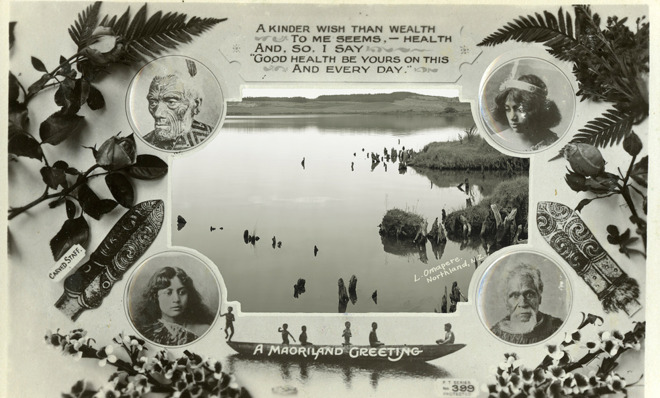
A free daily email with the biggest news stories of the day – and the best features from TheWeek.com
You are now subscribed
Your newsletter sign-up was successful
Postcards are not the oft-sent greeting they once were. Those quaint travel snapshots have been rendered a special, rare event thanks to text messages, Instagrams, and snapchats.
Which is why New Zealand photographer Murray Lloyd decided to capitalize on the relative rarity of postcards, turning them into a powerful commentary on the country's fraught land ownership history.
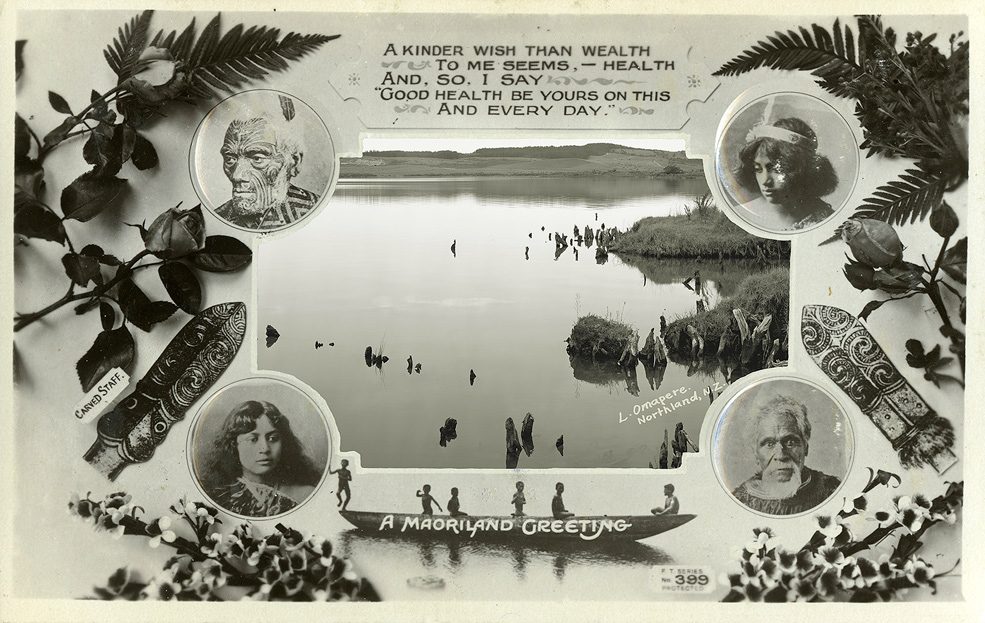
Lloyd, 49, had never even heard of his native New Zealand referred to as "Maoriland" until a friend gifted him a vintage postcard with the slogan. The card piqued Lloyd's interest, and he began researching the history of his country's colloquial term.
The Week
Escape your echo chamber. Get the facts behind the news, plus analysis from multiple perspectives.

Sign up for The Week's Free Newsletters
From our morning news briefing to a weekly Good News Newsletter, get the best of The Week delivered directly to your inbox.
From our morning news briefing to a weekly Good News Newsletter, get the best of The Week delivered directly to your inbox.
Used roughly from the late 1800s through World War I, "Maoriland evokes a quaint, patronizing time in our history when Maori were seen as 'noble savages' who had roamed a magnificent natural landscape," Lloyd said in an interview.
Ironically, by 1891 only 17 percent of New Zealand was owned by these indigenous Polynesians mainly thanks to the British Crown's settlements, which had dispossessed many Maori of their land. The juxtaposition between reality and the rosy outlook inscribed on New Zealand's postcards stayed with Lloyd. He decided to re-work the postcards to more accurately reflect his country's controversial history.
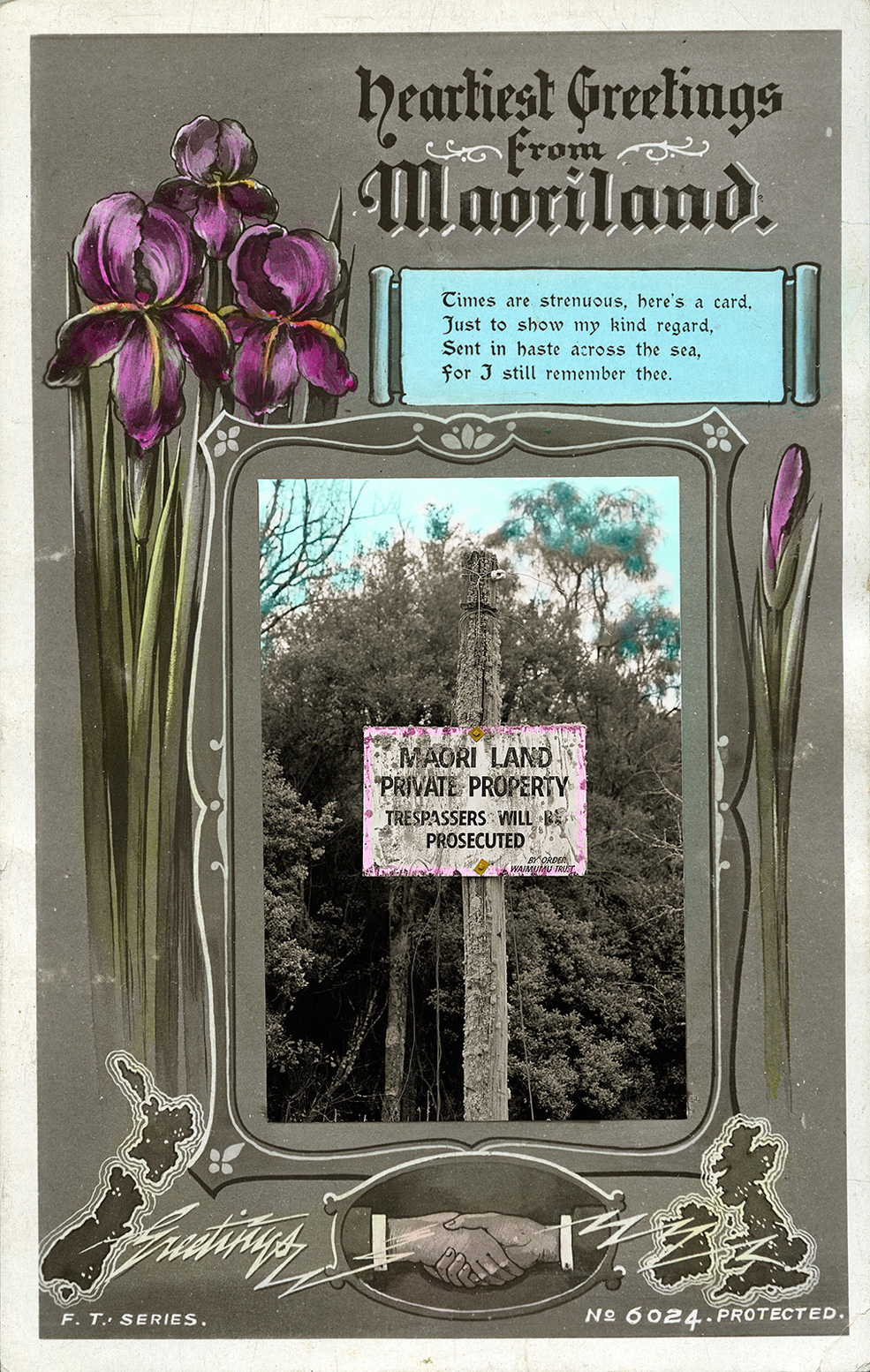
Lloyd began buying the original cards on Trade Me — "New Zealand's answer to eBay," he said — and replacing the original scenes with photographs of disputed land sites in the country.
He focused specifically on sites which had attracted controversy over land ownership since 1975, when a group called the Waitangi Tribunal was created to assess and make recommendations on disputed-land claims brought by Maori.
A free daily email with the biggest news stories of the day – and the best features from TheWeek.com
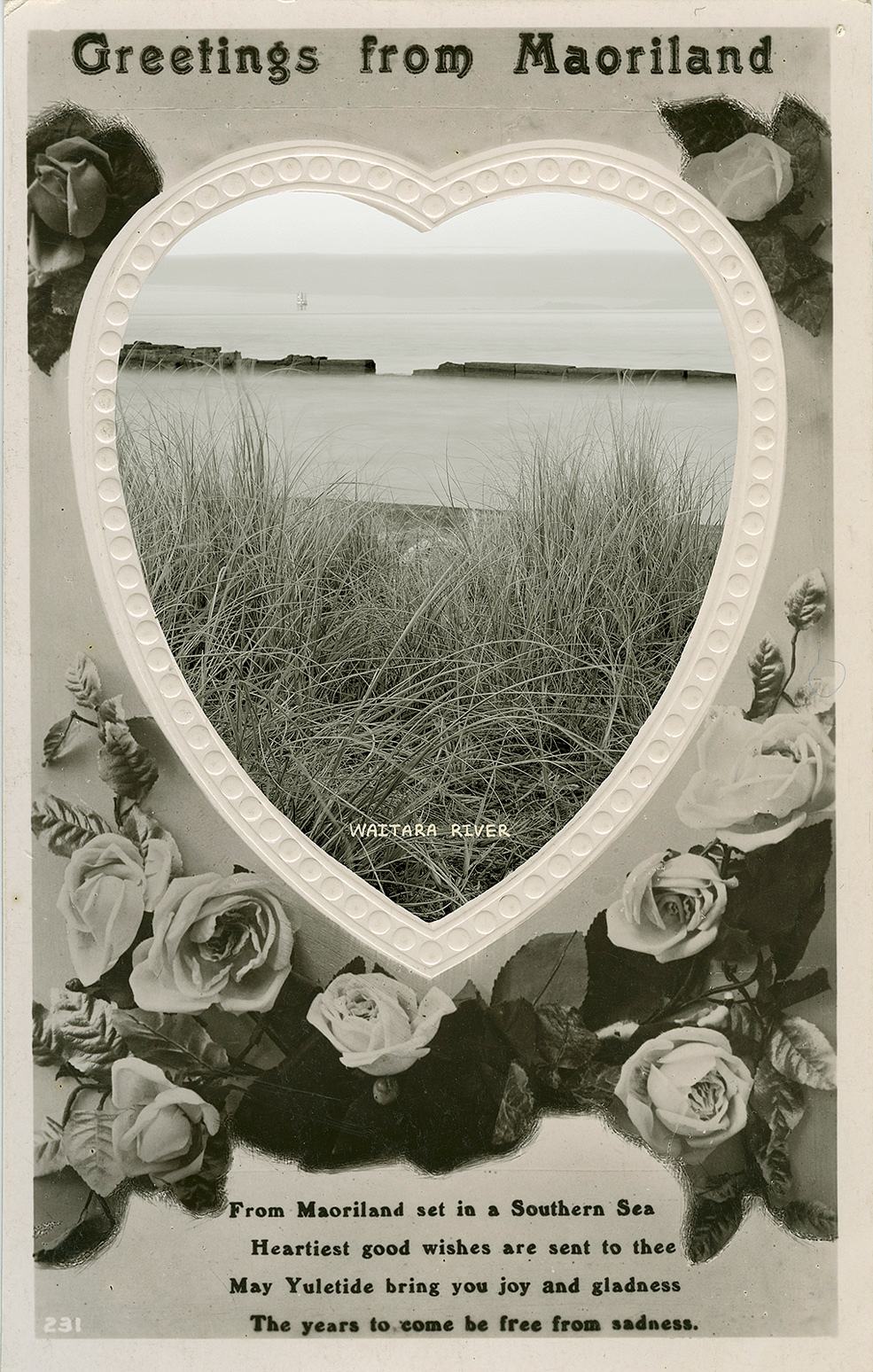
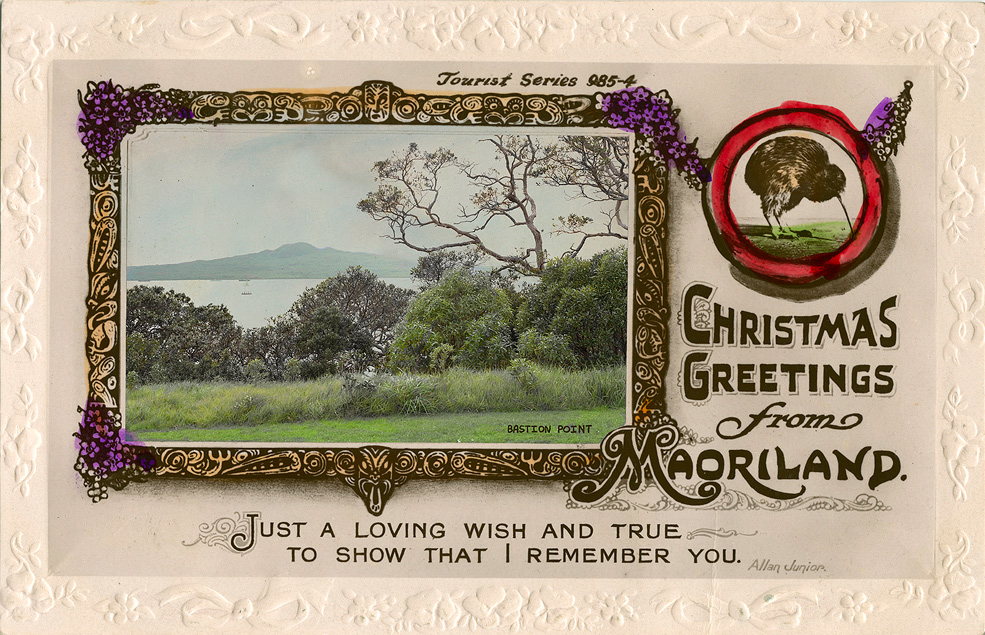
To ensure the vintage postcards and the new images matched, Lloyd spent hours hand-coloring his versions and replicating fonts, even using a large-format, 4x5 camera that he often dragged between locations.
"At one site, I'd walked an alternative route across mudflats for two kilometers carrying my tripod and camera," Lloyd said. "I was evicted … by an angry farmer."
"It really did feel like I was retracing the methods of the original photographers."
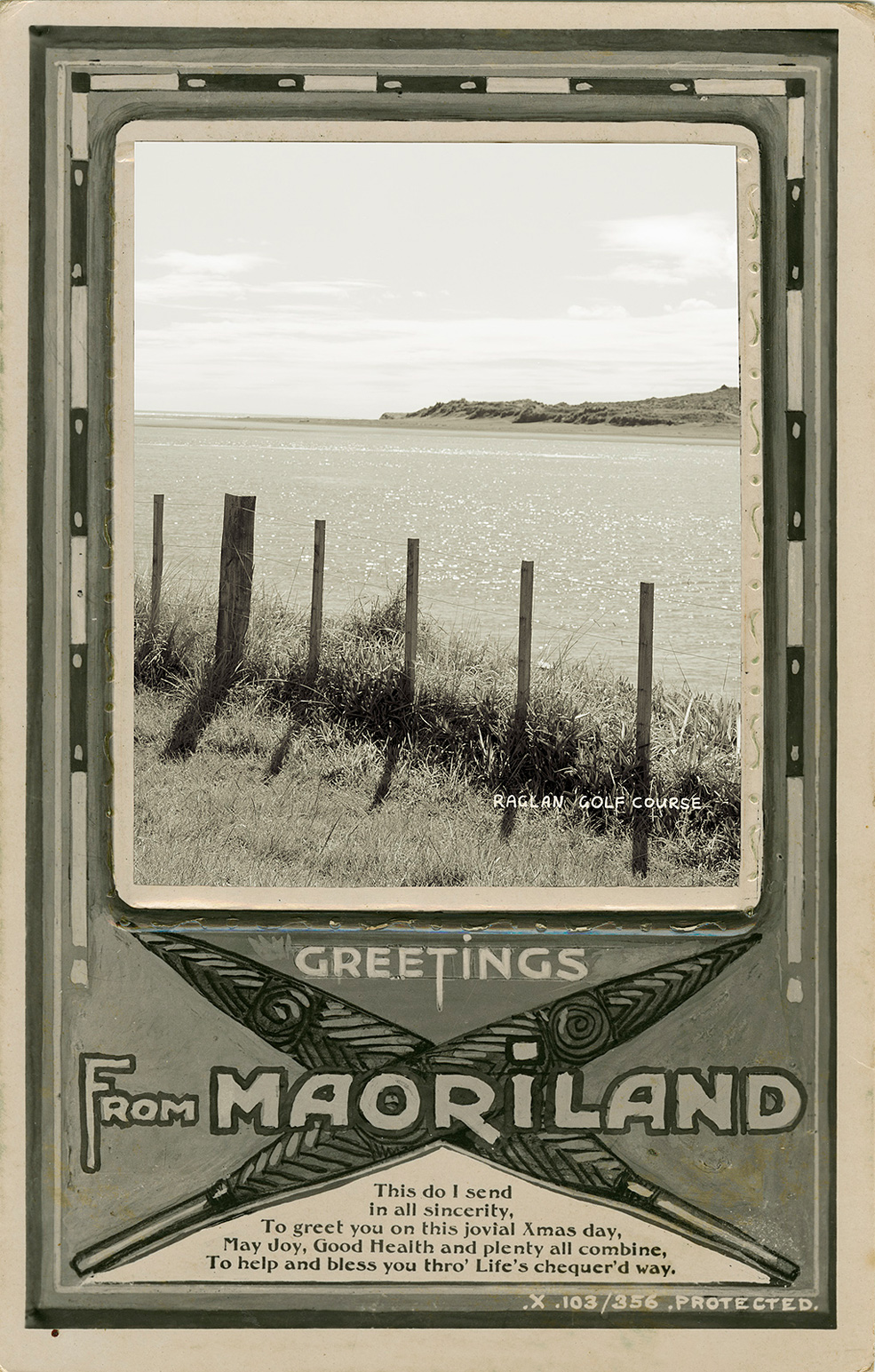
Lloyd's methods were so exacting, in fact, that one local artist wrote about how much the postcards had inspired him, while referring to Lloyd as a 19th-century photographer. And after exhibiting the cards in 2009 and 2010, demand grew to the point that Lloyd began selling reproductions.
"It was clearly stated that the cards were new, [but] one buyer responded less kindly claiming he had been misled," Lloyd said. "Perhaps reversing the historic unjust transactions toward the Maori in a small way."
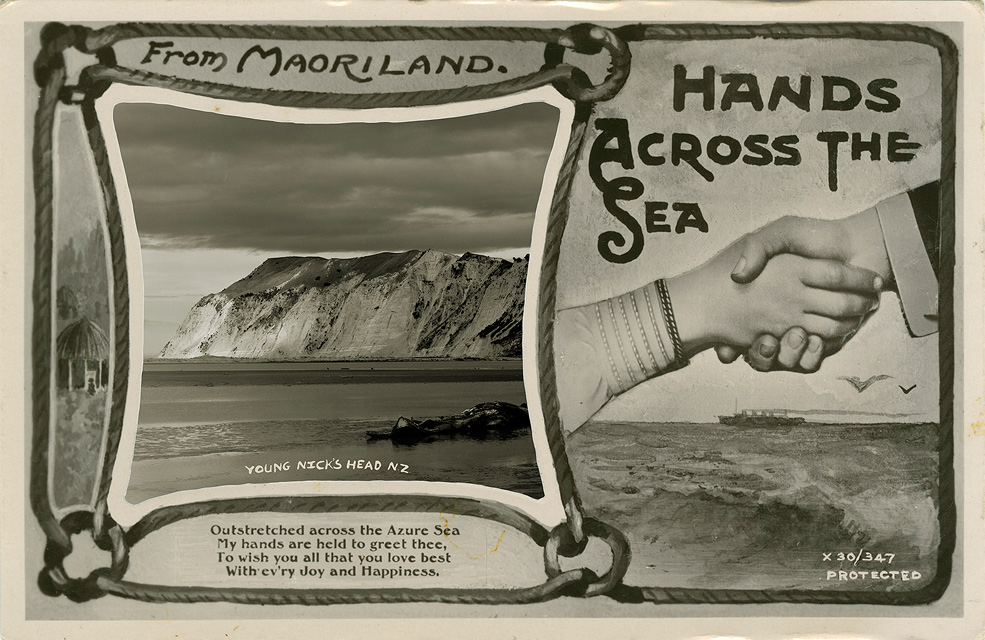
**To see more of Murray Lloyd's work, visit his website, Facebook page or follow him on Twitter**
Sarah Eberspacher is an associate editor at TheWeek.com. She has previously worked as a sports reporter at The Livingston County Daily Press & Argus and The Arizona Republic. She graduated from Northwestern University's Medill School of Journalism.
-
 Crisis in Cuba: a ‘golden opportunity’ for Washington?
Crisis in Cuba: a ‘golden opportunity’ for Washington?Talking Point The Trump administration is applying the pressure, and with Latin America swinging to the right, Havana is becoming more ‘politically isolated’
-
 5 thoroughly redacted cartoons about Pam Bondi protecting predators
5 thoroughly redacted cartoons about Pam Bondi protecting predatorsCartoons Artists take on the real victim, types of protection, and more
-
 Palestine Action and the trouble with defining terrorism
Palestine Action and the trouble with defining terrorismIn the Spotlight The issues with proscribing the group ‘became apparent as soon as the police began putting it into practice’
